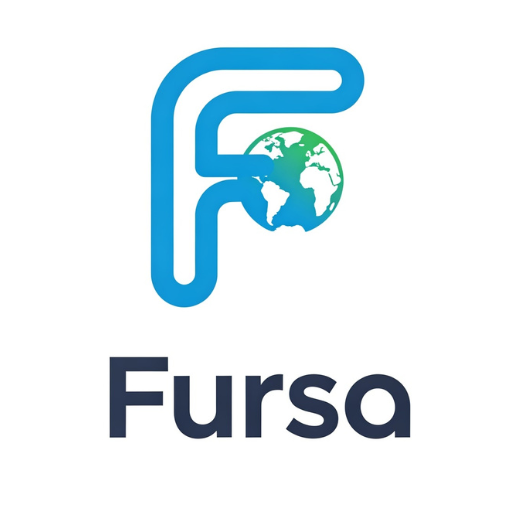Funding is the backbone of transformative education programs. In 2025, schools, nonprofits, and educators have access to a wealth of grants to support innovative teaching, STEM initiatives, and equity-focused projects. At Fursa Blog, we’ve curated the top 10 education grants for 2025 to help you secure the resources your students need. From federal programs to private foundations, these opportunities can empower your mission. Let’s dive in!
Top 10 Education Grants for 2025
-
NEA Foundation Learning & Leadership Grants
Amount: Up to $10,000 per year (max $20,000 over two years)
Eligibility: Public school teachers, education support professionals, or specialized instructional personnel who are National Education Association (NEA) members.
Deadline: February 2025 (applications open December 2024).
Purpose: Funds professional development to enhance teaching through critical thinking, experiential learning, and cultural awareness.
Tip: Highlight collaborative projects with measurable student outcomes.
Apply: NEA Foundation -
U.S. Department of Education Title I Grants
Amount: Varies by school district (millions allocated annually).
Eligibility: Schools serving low-income students.
Deadline: Ongoing (state-specific deadlines).
Purpose: Improves academic achievement in disadvantaged schools through resources, tutoring, and family engagement.
Tip: Work with your district’s grant coordinator to align with ESSA guidelines.
Apply: U.S. Department of Education -
PNC Foundation Grow Up Great Grants
Amount: Up to $500,000.
Eligibility: Nonprofits focused on early childhood education (ages 0-5).
Deadline: Rolling (apply by March 2025 for best chances).
Purpose: Enhances early learning through play-based curricula and family engagement.
Tip: Emphasize community partnerships in your proposal.
Apply: PNC Foundation -
National Science Foundation STEM Education Grants
Amount: $50,000-$1,000,000.
Eligibility: K-12 schools, nonprofits, and universities with STEM programs.
Deadline: October 2025 (check specific programs).
Purpose: Funds innovative STEM curricula, teacher training, and student engagement.
Tip: Propose scalable projects with clear evaluation plans.
Apply: NSF -
Mr. Holland’s Opus Foundation Grants
Amount: Instruments and equipment (value varies).
Eligibility: K-12 schools with music programs serving low-income students.
Deadline: March 2025.
Purpose: Provides instruments to sustain music education.
Tip: Show how music boosts student engagement and retention.
Apply: Mr. Holland’s Opus -
DonorsChoose Microgrants
Amount: Up to $2,000 per project.
Eligibility: Public and charter school teachers.
Deadline: Rolling.
Purpose: Funds classroom projects (books, tech, supplies) via crowdfunding.
Tip: Write a compelling story to attract individual donors.
Apply: DonorsChoose -
W.K. Kellogg Foundation Education Grants
Amount: $10,000-$1,000,000.
Eligibility: Nonprofits serving children, especially in underserved communities.
Deadline: Rolling.
Purpose: Supports equitable education and family engagement.
Tip: Focus on racial equity and community-driven solutions.
Apply: W.K. Kellogg Foundation -
Motorola Solutions Foundation Grants
Amount: $10,000-$50,000.
Eligibility: Schools and nonprofits with STEM or public safety programs.
Deadline: April 2025.
Purpose: Funds hands-on STEM activities (e.g., robotics, coding).
Tip: Highlight underrepresented groups’ participation.
Apply: Motorola Solutions -
Lois Lenski Covey Foundation Grants
Amount: $500-$3,000.
Eligibility: Schools, libraries, and nonprofits with bookmobile programs.
Deadline: March 2025.
Purpose: Supports literacy for underserved youth via mobile libraries.
Tip: Detail your outreach plan to reach remote communities.
Apply: Lois Lenski Covey -
Fund for Teachers Fellowship Grant
Amount: Up to $5,000 (individual) or $10,000 (team).
Eligibility: K-12 teachers with at least three years’ experience.
Deadline: January 2025.
Purpose: Funds self-designed professional development (e.g., travel, workshops).
Tip: Propose a unique learning experience tied to classroom impact.
Apply: Fund for Teachers
Tips for Applying
- Start Early: Most grants have tight deadlines. Begin drafting proposals 6-8 weeks in advance.
- Tailor Your Proposal: Align your project with the funder’s mission, using their language where possible.
- Use Data: Back claims with stats (e.g., “Our STEM program boosted test scores by 15%”).
- Collaborate: Partner with local organizations to strengthen your application.
- Follow Up: If rejected, ask for feedback to improve next time.
Need help writing proposals? Check out our Grant Writing Masterclass for expert tips.
Secure Funding Today
These grants can transform your classroom or community. Explore the links above, start planning your applications, and share your funding success stories with us at info@fursablog.com. Want more opportunities? Visit our Grants section for the latest updates.
